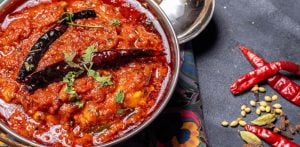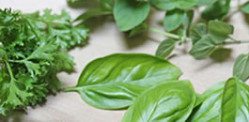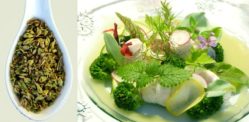They work best as part of a holistic lifestyle.
In our bustling modern lives, maintaining robust immunity is more crucial than ever before.
We are constantly juggling work, family, and social commitments, often leaving little time for self-care.
Thankfully, the ancient wisdom of Ayurveda offers a treasure trove of natural solutions.
This traditional Indian system of medicine emphasises holistic well-being and preventative care.
It provides us with powerful herbs that can naturally fortify our body’s defences.
Let us explore five remarkable Ayurvedic herbs renowned for their immunity-boosting properties, helping you stay vibrant and resilient.
Tulsi (Holy Basil)
 Tulsi, often revered as “The Queen of Herbs,” holds a sacred place in many South Asian households.
Tulsi, often revered as “The Queen of Herbs,” holds a sacred place in many South Asian households.
Its remarkable medicinal properties have been celebrated in Ayurvedic texts for centuries.
This aromatic plant is not just a spiritual symbol but a potent adaptogen.
Adaptogens help the body cope with various stressors, both physical and emotional.
By mitigating stress, Tulsi indirectly supports a healthier immune response, as chronic stress can weaken our defences.
Furthermore, Tulsi is rich in antioxidants and phytochemicals that actively fight off pathogens and protect cells from damage.
The herb is particularly beneficial for respiratory health, a key component of overall immunity.
It can help clear congestion and soothe airways, making it a go-to remedy for common colds and coughs.
Many families will recall their elders recommending Tulsi tea during seasonal changes.
Regular consumption of Tulsi can therefore enhance the body’s natural ability to ward off infections.
It truly lives up to its name by providing a holistic shield for our well-being.
Ashwagandha
 Ashwagandha, scientifically known as Withania somnifera, translates from Sanskrit to “smell of a horse,” alluding to its traditional use for imparting strength and vitality.
Ashwagandha, scientifically known as Withania somnifera, translates from Sanskrit to “smell of a horse,” alluding to its traditional use for imparting strength and vitality.
This powerful adaptogenic herb is a cornerstone in Ayurvedic medicine for its rejuvenating properties.
It is particularly effective in combating stress, which is a major culprit in suppressing immune function.
By helping to regulate cortisol levels, Ashwagandha promotes a sense of calm and resilience.
This allows the immune system to function optimally without being overburdened by stress responses.
Beyond its stress-reducing capabilities, Ashwagandha is believed to enhance the body’s overall energy and stamina.
It supports the production of vital immune cells, including white blood cells that are crucial for fighting infections.
The active compounds in Ashwagandha, such as withanolides, contribute to its immunomodulatory effects.
Traditionally, it’s consumed as a powder, often mixed with warm milk and honey or ghee.
Incorporating Ashwagandha into your routine can thus provide a significant boost to both your physical and mental fortitude.
Amla (Indian Gooseberry)
 Amla, or Indian Gooseberry, is a true superfood and one of the richest natural sources of Vitamin C.
Amla, or Indian Gooseberry, is a true superfood and one of the richest natural sources of Vitamin C.
This potent antioxidant plays a critical role in strengthening the immune system.
Vitamin C supports various cellular functions of both the innate and adaptive immune systems.
It enhances the production and function of white blood cells, such as lymphocytes and phagocytes.
These cells are essential for identifying and neutralising harmful pathogens like bacteria and viruses.
Amla’s high antioxidant content also helps protect the body from oxidative stress.
This humble green fruit is incredibly versatile and can be consumed in many forms.
Whether eaten fresh, juiced, powdered, or as part of the famous Ayurvedic formulation Chyawanprash, Amla delivers a powerful dose of immune support.
It is considered a Rasayana herb in Ayurveda, meaning it promotes longevity and rejuvenation.
Its regular consumption is often linked to improved digestion, skin health, and, most importantly, a fortified immune response.
For many in the South Asian community, Amla is a familiar and trusted ally for good health.
Giloy (Guduchi)
 Giloy, also known by its Sanskrit name Guduchi, is often referred to as “Amrita,” meaning the nectar of immortality.
Giloy, also known by its Sanskrit name Guduchi, is often referred to as “Amrita,” meaning the nectar of immortality.
This high praise stems from its extraordinary immunomodulatory and detoxifying properties.
Giloy is considered one of Ayurveda’s most valuable herbs for building a strong defence mechanism.
It works by activating immune cells, such as macrophages, which are responsible for engulfing and destroying invading microbes.
This herb also helps the body remove toxins, purifying the blood and supporting liver function.
Traditionally, Giloy has been widely used to combat fevers and chronic infections, showcasing its potent anti-pyretic and anti-microbial actions.
It helps balance the doshas (Vata, Pitta, Kapha) in the body, contributing to overall equilibrium and health.
The stem of the Giloy plant is typically used to make decoctions or powders.
Its ability to enhance the body’s natural resistance makes it an invaluable herb, especially during times when immunity might be compromised.
Giloy truly embodies the Ayurvedic principle of strengthening the body from within.
Turmeric (Haldi)
 No discussion on immunity-boosting Ayurvedic herbs would be complete without mentioning Turmeric, or Haldi.
No discussion on immunity-boosting Ayurvedic herbs would be complete without mentioning Turmeric, or Haldi.
This vibrant golden spice is a staple in almost every South Asian kitchen for its culinary uses and profound health benefits.
The active compound in Turmeric, curcumin, is a powerful anti-inflammatory and antioxidant agent.
Chronic inflammation can weaken the immune system over time, making the body more susceptible to illness.
Curcumin helps to modulate the inflammatory response, thereby supporting immune health.
Turmeric’s antioxidant properties also protect immune cells from damage caused by free radicals.
It enhances the activity of various immune cells and has been shown to possess antimicrobial properties.
From adding it to curries and dals to drinking a warm glass of “Haldi Doodh” (turmeric milk), its benefits are widely acknowledged.
For better absorption of curcumin, it’s often recommended to consume Turmeric with a pinch of black pepper.
This golden healer offers a simple yet effective way to bolster your body’s natural defences daily.
These five Ayurvedic herbs offer a potent, natural pathway to enhanced immunity.
They have been trusted for generations within South Asian traditions for their remarkable health-promoting qualities.
Incorporating them into your daily routine can provide a significant boost to your body’s natural defence mechanisms.
Ayurveda teaches us that true health comes from living in harmony with nature and understanding our body’s unique needs.
These herbs are powerful tools, but they work best as part of a holistic lifestyle. This includes a balanced diet, regular exercise, adequate sleep, and stress management.
Remember, consistency is key when using herbal remedies for sustained benefits. While these herbs are generally safe for most people, it is always wise to listen to your body.
If you have any pre-existing health conditions or are on medication, consider consulting an Ayurvedic practitioner or healthcare professional.
They can provide personalised guidance to ensure these herbs are suitable for you.
Embrace the wisdom of Ayurveda and let these natural wonders support your journey towards vibrant health and a stronger immune system.






























































